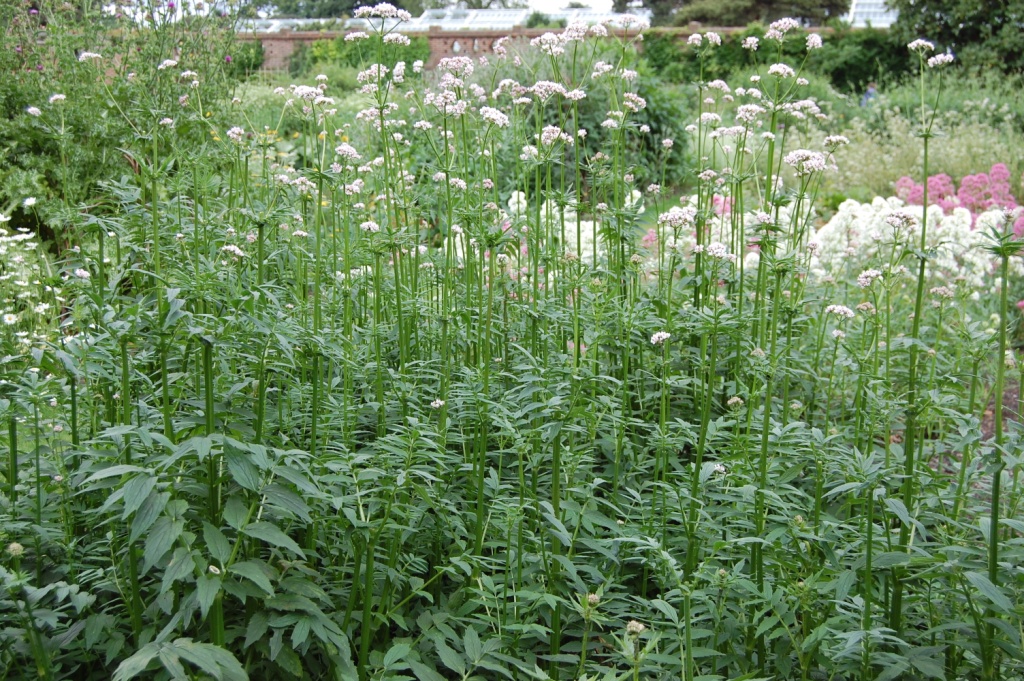Products

Valerian (Sugandhawal)

- Botanical Name: Valeriana officinalis
- Family: Valerianaceae
- Flowering and fruiting: February - May
- Parts Used: Rhizome and roots.
- Distribution: 1500 - 3300 m, east to west.
- Method of Extraction: Steam Distillation
It is a perennial herb to 45 cm tall with, horizontal, nodulat and aromatic root stock. Basal leaves with ovate-heart shaped acute blade, 2.5 - 8 cm, and toothed or wavy-margined, long stalked; stem leaves few, small, entire or pinnate lobed. Flowers white or pink tinged, in terminal clusters, borne on erect nearly leafless stem. Fruits small with persistent pappus like calyx. Valerian gets its name from the Latin word for "well-being"alerian was best known to ancient classical authors as a diuretic and treatment for menstrual difficulties. As late as the nineteenth century, valerian root was also the chosen treatment for hysteria and vapors, two "female nervous conditions." Clinical research shows that valerian root improves overall sleep quality, shortening the length of time it takes to fall asleep and helping people sleep more soundly. Overall, valerian root seems to help poor sleepers the most. 44% of the test group reported "perfect" sleep and 89% noted significant improvement after taking valerian root, in comparison with placebo. A large multimember study has also demonstrated valerian root's effectiveness in children with sleeping problems related to nervousness. Valerian root's popularity as a sedative herb seems to be increasing along with the stresses of modern life.
| Specification of Valerian (Sugandhawal) | |
| 1. Organoleptic Properties | |
| Appearance | Fluid to slightly viscous liquid |
| Color | yellowish-green to brownish-yellow |
| Aroma | Heady, unpleasant |
| 2. Physico-chemical Properties | |
| Specific gravity | 0.930 to 0.970 at 20° C |
| Optical rotation | (-) 35° to (-) 10° at 20° C |
| Refractive index | 1.470 to 1.485 at 20º C |
| Acid number | 0.5 to 2.5 |
| Ester number | |
| Ester number after acetylation | 40 to 65 |
| Solubility | Soluble in alcohol and oils. Insoluble in water. |
| 3. Chemical constituent: | |
| Acetic acid, ascorbic acid, beta-ionone, calcium, caffeic acid, magnesium, manganese, quercitin, valeric acid | |
| 4. Uses | |
|
Valerian reduces insomnia, mild anxiety or restlessness, muscle spasms and cramping, menstrual cramps, intestinal cramping/colic |
|
